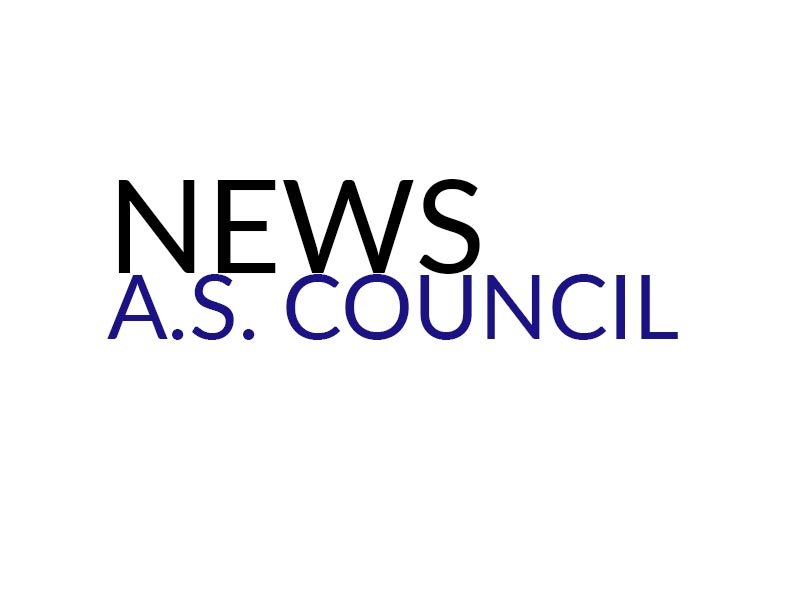Members of A.S. Council voted to defund all campus media publications receiving money from student fees on Nov. 18.
Assistant Vice President of Equity, Diversion and Inclusion Daniel Juarez proposed to remove Section 2.4 D, E and F from A.S.’s constitution regarding financial support to UCSD media publications. A.S. Council’s discussion included arguments that A.S. Council is partially responsible for all publications they fund, whether negative or positive, and that other universities do not fund media. Though a number of A.S. Council members initially opposed this motion, the final standing vote was a 22-3-0 roll call vote in favor of Juarez’s proposal.
The Koala’s Editor-in-Chief Gabe Cohen disagreed with A.S. Council’s decision and believes it is an overly authoritative decision that stems from differences in opinion.
“The A.S. vote to cut all media funding, which came a day after the administration’s statement denouncing The Koala, is troubling,” Cohen said. “Part of attending a university is learning through considering opinions and voices that differ from your own, which you might not agree with. Cutting funding to print media is a slippery slope in the direction of anti-intellectualism and paternalism that should have no place on this campus.”
A.S. President Dominick Suvonnasupa declared that this vote does not infringe on First Amendment rights.
“One thing we talked about [was] how does this work with freedom of speech,” Suvonnasupa stated. “We still encourage all of our students to express their opinions and find outlets, say what they want to say, share their ideas. However, we just didn’t think it was the best use of our resources to be funding that.”
Editor-in-Chief of the Muir Quarterly Andrew Deneris also expressed his concern over how Council’s vote may censor some media, despite his ability to see the reasons for their decision.
“I don’t think the answer to speech and to media the council finds offensive and hateful to the campus climate is less speech and less media,” Deneris said. “If you assume all of these orgs are reliant on A.S. funding, which presumably they are, what you’re doing is silencing all of these publications. You’re ensuring that they can’t print at all, or they have to make some sort of compromise in order to still be able to make their voices heard.”
Deneris proceeded by asserting his frustration with how A.S. Council did not consult any of the media organizations before their vote. He first heard about the defunding motion from a Muir College Council member the night of the vote and A.S. Council did not notify him until the following day via email.
Instead, Deneris would have preferred Council to help the media organizations find other financial sources, in addition to communicating with the media organizations prior to their vote.
“I also wish there had been more of an effort to find us alternate sources of funding before they just went and cut us off,” Deneris said. “Right now, we’re in a position where if nothing happens, we’ve lost that money. It’s gone.”
Hours before A.S. Council’s meeting, UCSD administrators publicly denounced The Koala as a “profoundly repugnant, repulsive, attacking and cruel” publication and asked students, faculty and other members of the community to censure it. Vice Chancellor of Student Affairs Juan Gonzalez read the statement at the beginning of the A.S. Council meeting.
Campuswide senator Ryan Perez stated that he voted to cut funding in order to focus on making UCSD’s campus more inclusive.
“Being able to address campus climate and make a political statement while being more fiscally responsible and environmentally sustainable is consistent with my vision of a better UCSD,” Perez told the Guardian. “[I want] a more compassionate campus that aims to make a positive impact on this world.”
A.S. Council provided approximately $15,000 per year toward campus publications, funds which will now be reallocated toward A.S. Council’s other areas of interests, including housing projects.
“I believe there are other areas that really needed more attention,” Suvonnasupa said. “The funds most likely will be reallocated to a new office we’re trying to create for health and wellness and another office for housing. Housing is going to a big issue for the next year. The [University of California] is sending us 10,000 more students to the system.”
With this vote, Suvonnasupa articulated that A.S. Council is open to helping publications affected by A.S. Council’s decision to seek other monetary sources, such as colleges, if publications are affiliated with them.
“There are lots of resources on campus. If they’re academic publications, I’m sure the academic divisions are willing to find funding,” Suvonnasupa said. “If any of the publications reach out to us, we’re happy to make sure that we do everything we can.”
In a previous version of this article, it had stated that we contacted all affected media organizations. More specifically, we contacted The Koala, The Saltman Quarterly and The Muir Quarterly. The Muir Quarterly and Saltman Quarterly did not respond by press time. The Muir Quarterly expressed interest in commenting after the deadline and the online version of the article has been updated accordingly.








